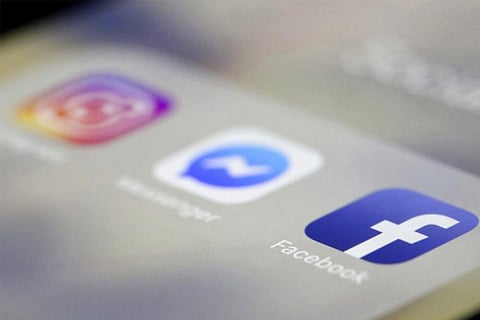

London
Our Facebook or Instagram friends implicitly influence our eating habits as social media users are more likely to eat fruit and vegetables -- or snack on junk food -- if they think their friends do the same, say researchers.
The research by the UK-based Aston University's School of Life and Health Sciences found that study participants ate an extra fifth of a portion of fruit and vegetables themselves for every portion they thought their social media peers ate.
Conversely, the Facebook users were found to consume an extra portion of unhealthy snack foods and sugary drinks for every three portions they believed their online social circles did.
The finding suggests we eat around a third more junk food if we think our friends also indulge.
"This suggests we may be influenced by our social peers more than we realise when choosing certain foods. We seem to be subconsciously accounting for how others behave when making our own food choices," said Aston University student Lily Hawkins who led the study alongside supervisor Dr Jason Thomas.
In the study, published in the scientific journal Appetite, the researchers asked 369 university students to estimate the amount of fruit, vegetables, 'energy-dense snacks' and sugary drinks their Facebook peers consumed on a daily basis.
This information was cross-referenced with the participants' own actual eating habits and showed that those who felt their social circles 'approved' of eating junk food consumed significantly more themselves.
Meanwhile, those who thought their friends ate a healthy diet ate more portions of fruit and veg.
Their perceptions could have come from seeing friends' posts about the food and drink they consumed, or simply a general impression of their overall health.
There was no significant link between the participants' eating habits and their Body Mass Index (BMI), a standard measure of healthy weight, however.
"If we believe our friends are eating plenty of fruit and veg we're more likely to eat fruit and veg ourselves. On the other hand, if we feel they're happy to consume lots of snacks and sugary drinks, it can give us a 'licence to overeat' foods that are bad for our health, said Hawkins.
The researchers said the next stage of their work would track a participant group over time to see whether the influence of social media on eating habits had a longer-term impact on weight.
"The implication is that we can use social media as a tool to 'nudge' each other's eating behaviour within friendship groups, and potentially use this knowledge as a tool for public health interventions," wrote the researchers.
With children and young people spending a huge amount of time interacting with peers and influencers via social media, "the important new findings from this study could help shape how we deliver interventions that help them adopt healthy eating habits from a young age - and stick with them for life," noted Professor Claire Farrow, Director of Aston University's Applied Health Research Group.
Visit news.dtnext.in to explore our interactive epaper!
Download the DT Next app for more exciting features!
Click here for iOS
Click here for Android